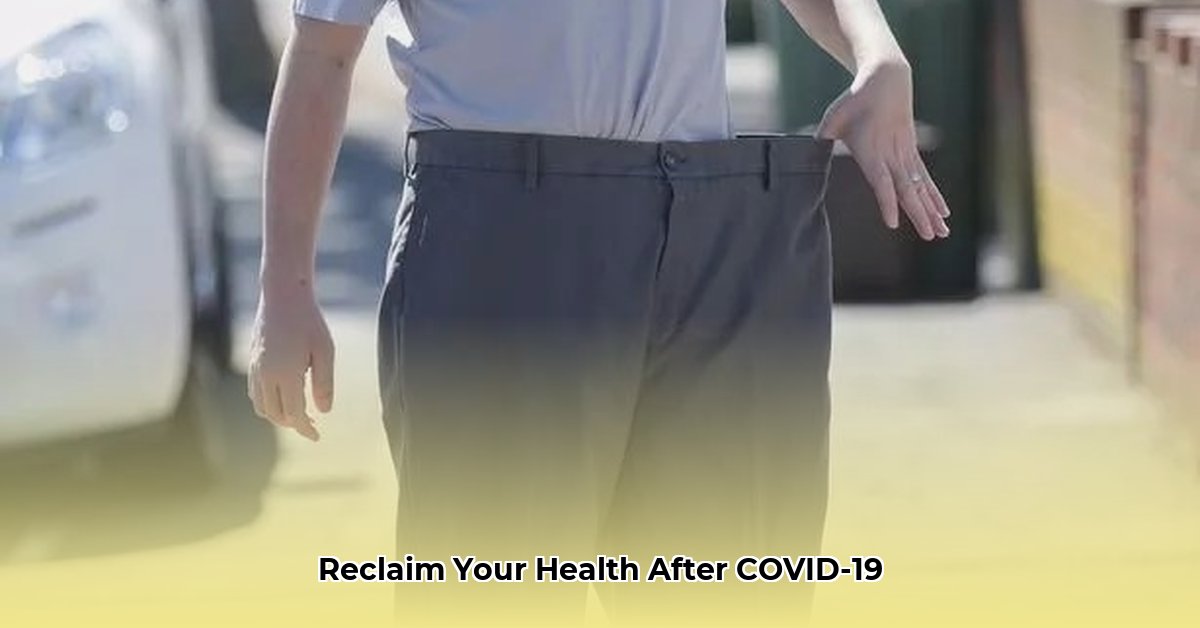
Understanding COVID-19 Related Weight Loss
Unintentional weight loss following a COVID-19 infection is a common and concerning issue. Many individuals experience this, regardless of the severity of their initial illness. This review article explores the causes, consequences, and effective strategies for regaining health and weight after COVID-19.
Why Does COVID-19 Cause Weight Loss?
Several factors contribute to weight loss after a COVID-19 infection:
- Loss of Appetite: COVID-19 can alter your sense of taste and smell (anosmia and ageusia), making food less appealing, leading to reduced calorie intake.
- Gastrointestinal Issues: Nausea, vomiting, and diarrhea are common symptoms, hindering nutrient absorption and contributing to weight loss.
- Metabolic Changes: Research suggests COVID-19 might temporarily increase metabolism, burning more calories than usual.
- Increased Inflammation: The body's inflammatory response to the virus can also affect metabolism and nutrient utilization.
- Stress and Illness: The physical and emotional toll of illness reduces appetite and can interfere with healthy weight management.
How significantly has your weight changed since recovering from COVID-19? Studies indicate substantial weight loss in a considerable number of COVID-19 patients, sometimes exceeding 5% of total body weight. This is a significant health concern.
The Scope of the Problem: Quantifying COVID-19 Weight Loss
Studies have shown a concerning prevalence of significant weight loss among COVID-19 patients. A large percentage experienced weight loss exceeding 5% of their body mass, with those hospitalized showing more severe effects. This highlights the need for comprehensive post-COVID care. Is this something you've experienced? Don't hesitate to seek medical advice.
Regaining Your Weight: A Practical Guide
Regaining weight lost due to COVID-19 necessitates a careful, individualized approach. It's a journey, not a race. Here's a structured plan:
1. Consult Your Doctor: This is paramount. Your physician can rule out other health conditions, assess your overall health and provide guidance on safe weight regain strategies. Many health professionals recommend this as the first step.
2. Seek Nutritional Guidance: A registered dietitian can develop a personalized meal plan addressing any nutritional deficiencies and promoting healthy weight gain. This tailored approach is a cornerstone of successful recovery.
3. Gradually Increase Caloric Intake: Avoid drastic changes. Slowly increase food intake, paying close attention to your body's response, adjusting portions as needed.
4. Prioritize Nutrient-Rich Foods: Focus on foods packed with protein (lean meats, fish, beans, lentils), healthy fats (avocado, nuts, seeds), and complex carbohydrates (whole grains, fruits, vegetables). These provide the building blocks for recovery.
5. Monitor Progress and Adjust: Regularly track your weight and any changes in your appetite or digestion. Adjust your plan in consultation with your doctor or dietitian based on your progress. This ensures ongoing improvement.
6. Gentle Exercise: Once your doctor permits, incorporate gentle exercise into your routine. This aids muscle growth, boosts overall health, and contributes significantly to weight management.
Long-Term Health and Prevention: A Holistic Approach
The long-term effects of COVID-19-related weight loss are still being studied. However, adopting and maintaining healthy habits is crucial even after weight regain.
"Maintaining a healthy lifestyle after recovering from COVID-19 is not merely about regaining weight, but about restoring overall well-being. This includes focusing on balanced nutrition, moderate physical activity, and stress management," says Dr. Anya Sharma, MD, Infectious Disease Specialist, Johns Hopkins Hospital.
Risk Assessment Matrix
Understanding the potential risks associated with COVID-19 weight loss is crucial for effective recovery. Early intervention minimizes long-term complications.
| Risk Factor | Likelihood | Severity | Mitigation Strategies |
|---|---|---|---|
| Malnutrition | High | High | Nutritional screening, dietary counseling, supplementation |
| Muscle Loss | High | Moderate | Regular exercise, high-protein diet |
| Prolonged Recovery | High | High | Early medical intervention, comprehensive support |
| Impaired Kidney Function | Moderate | Moderate | Renal function monitoring, dietary adjustments |
| Anemia | Moderate | Moderate | Iron-rich foods, potential supplementation |
| Increased Inflammation | Moderate | Moderate | Anti-inflammatory diet, stress management |
| Delayed Weight Regain | High | High | Personalized nutritional plans, ongoing support |
Conclusion: A Collaborative Journey to Recovery
Recovering from COVID-19-related weight loss requires a collaborative effort between you, your healthcare providers, and a supportive environment. Remember, proactive steps significantly improve your chances for a full recovery and prevent lingering health consequences. Don't hesitate to reach out for help; seeking support is a sign of strength.